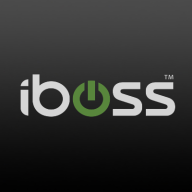


Azure Key Vault and JumpCloud compete in cloud-based security and management solutions. Azure Key Vault seems to have the upper hand due to its superior integration with Azure services and strong identity management features.
Features: Azure Key Vault excels in integrating with Microsoft's ecosystem, offering robust security features, seamless integration with Azure services, and strong identity management capabilities. JumpCloud provides a versatile cloud directory platform, noted for its extensive device and user management capabilities, with features like single sign-on and device management making it a strong choice for varied environments.
Room for Improvement: Azure Key Vault users express the need for improved key rotation, better integration with non-Microsoft platforms, and enhanced mobile device support. JumpCloud could improve its MDM functionalities, expand integrations with other applications, and refine its user interface to be more intuitive.
Ease of Deployment and Customer Service: Azure Key Vault is praised for reliable technical support and extensive documentation, although some complexities arise during initial setup. JumpCloud is known for excellent customer support and ease of device setup and management, albeit with challenges in API and scripting for dynamic environments.
Pricing and ROI: Azure Key Vault offers affordable pricing, especially in comparison to competitors like CyberArk, with pay-as-you-go options, though some features are deemed costly. JumpCloud's pricing is transparent and flexible, offering tiered packages and per-user pricing, providing strong value for money with notable ROI through operational efficiency and device management.



iboss offers a comprehensive security platform designed for diverse use cases such as web filtering, data loss protection, corporate proxy services, and URL filtering.
iboss integrates advanced features to address dynamic security needs, leveraging its strength in SASE, ZTNA, AI initiatives, and cloud integration, while ensuring seamless operations for remote work. It excels in historical forensics, malware protection, and flexible cloud deployments. Users benefit from comprehensive traffic scanning, robust malware detection, and PaaS capabilities that reduce hardware management. An intuitive admin console ensures efficient management with content filtering and low false positives. SSL decryption enhances security, while DLP protects data in AI conversations. Deployment is rapid and scalable, allowing effortless integration with emerging technologies.
What features does iboss offer?
What benefits and ROI should users consider?
iboss finds significant application in sectors such as education, where web filtering for K-12 is crucial, and in corporate environments requiring robust proxy services and URL filtering for network security. Its adaptability is essential in scenarios demanding flexible, decentralized security frameworks, particularly for remote work setups.
Microsoft Azure Key Vault is a cloud-based data security and storage service that allows users to keep their secrets safe from bad actors.
Benefits of Microsoft Azure Key Vault
Some of the benefits of using Microsoft Azure Key Vault include:
Reviews from Real Users
Microsoft Azure Key Vault stands out among their competitors for a number of reasons. Two major ones are the overall robustness of the solution and its ability to protect and manage many different digital asset types. The many features that the solution offers allows users to tailor their experience to meet their specific needs. Its flexibility enables users to accomplish a wide variety of security and identity management related tasks. It empowers users to secure a wide array of assets. Users can keep many different types of secrets away from bad actors.
A cloud architect at a marketing services firm writes, “All its features are really valuable. It's really well thought-out. It's a complete turnkey solution that has all the concerns taken care of, such as access control and management. You can use it in infrastructure as code to create key vaults, APIs, PowerShells, CLIs, even Terraform. You can also use it in different services across the board. If you have app services, or virtual machines, Kubernetes, or Databricks, they can all use Key Vault effectively. In my opinion, in a DevSecOps, DevOps, or even in a modern Azure implementation, you have to use Azure Key Vault to make sure you're addressing security and identity management concerns. By "identity" I mean usernames, passwords, cryptography, etcetera. It's a full-blown solution and it supports most breeds of key management: how you store keys and certify.”
Roger L., the managing director of Cybersecurity Architecture at Peloton Systems, says, “The most valuable aspect of the product is its ability to keep our admin password accounts for keys and a lot of our high-value assets. It can manage those types of assets. So far, the product does a great job of managing keys.”
JumpCloud enables organizations to manage devices, users, and applications across platforms like Windows, Mac, Linux, iOS, and Android. It offers centralized authentication, identity and access management, single sign-on, directory services, security policy enforcement, and cloud service integration.
Organizations leverage JumpCloud for its robust device management, policy management, and seamless integration with applications such as Microsoft 365 and Google Workspace. Its flexibility, stability, scalability, and ease of use make it a strong choice for managing business directories, executing scripts on-demand, synchronizing system access, and implementing mobile device management. Key features include remote access, Windows Out of Box Experience, strong authentication and authorization controls, centralized user and device management, efficient onboarding and offboarding processes, and extensive security and reporting features.
What are the most important features?In specific industries, JumpCloud is utilized to manage a wide array of tasks such as automating administrative functions in healthcare, ensuring secure access to sensitive data in finance, and supporting remote work needs in technology sectors. Its ability to integrate with diverse platforms and provide centralized control makes it suitable for managing complex IT environments.
We monitor all Enterprise Password Managers reviews to prevent fraudulent reviews and keep review quality high. We do not post reviews by company employees or direct competitors. We validate each review for authenticity via cross-reference with LinkedIn, and personal follow-up with the reviewer when necessary.